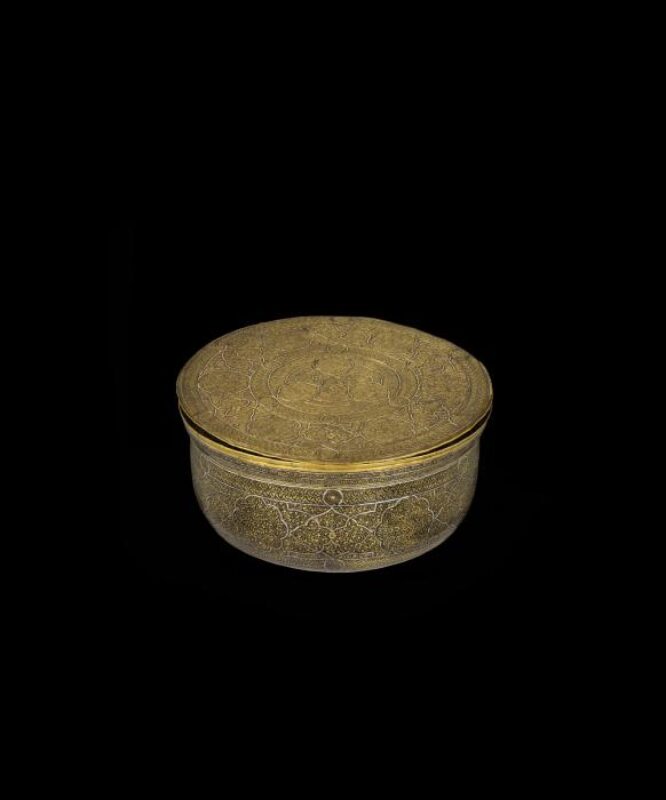
Box with cover
Mahmud-al-kurdi (Master Mahmud the Kurd)
Luxury goods produced in the sixteenth century reflect intense cultural and artistic exchanges between craftsmen across the Mediterranean. In Cairo, Venice, Damascus, Florence, Valencia and Istanbul, exquisite objects were created for international markets that prized original design and superb craftsmanship. Venice was the main European trading partner of the most powerful rulers of the Islamic Mediterranean, such as the Mamluk sultans in Syria and Egypt. Master craftsmen like Zayn al-Din and Mahmud al-Kurdi responded to the tastes of European clients by adapting the calligraphic and geometrical ornamentation of Islamic metalwork into purely decorative patterning, as seen in these two magnificent examples.
Bowl-shaped boxes with matching airtight covers are rare in Islamic metalwork but were popular export ware from Mamluk Egypt and Syria. This box is signed by Mahmud al-Kurdi, whose name appears on many pieces of export metalwork. Unique among his signed boxes, it bears his name (on the rim) in both Arabic and Roman script. The latter is a transliteration of the Arabic text and reads the ‘work of the master Mahmud’.